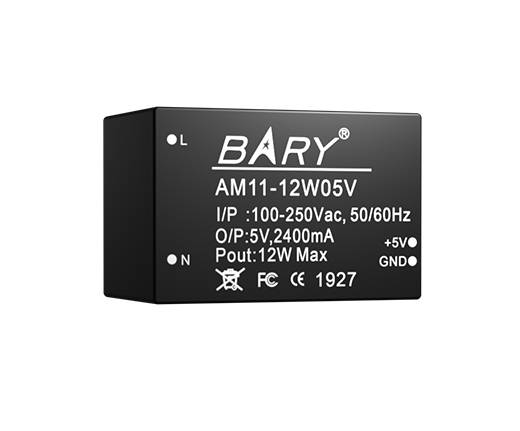

With the continuous development of industrial automation and Internet of Things technology, the Modbus protocol is becoming more and more popular as a communication protocol. Among many communication protocols, why is Modbus so popular? This article will delve into the advantages of the Modbus protocol and why the Modbus protocol is chosen in intelligent control systems.
Introduction to Modbus protocol
Modbus
is a serial communications protocol first created in 1979 by Modicon
(now part of Schneider Electric). It is widely used in the field of
industrial control and has gradually evolved into different variants,
including Modbus RTU (serial), Modbus ASCII (serial based on ASCII code), and Modbus TCP (TCP/IP protocol based on Ethernet), etc.
Topic article:
Communication protocol: ModBus RTU protocol and ModBus TCP protocol
Main feature
Communication method: Modbus protocol supports different communication methods, including serial communication (Modbus RTU and Modbus ASCII) and Ethernet-based communication (Modbus TCP/IP). This makes it suitable for a variety of different devices and application scenarios.
Topic article:
3 steps to learn the TCP/IP protocol of the communication protocol
Simplicity:
The Modbus protocol is designed to be relatively simple and easy to
understand and implement. It adopts a master-slave structure, in which
one device acts as the master station and other devices act as slave
stations, realizing data exchange between devices.
Data
format: Modbus protocol uses a compact binary data format to provide
efficient communication through lightweight data exchange. This is very
important for applications with high real-time requirements in
industrial control systems.
Flexibility:
The Modbus protocol is very flexible and supports different types of
data, including Coils, Discrete Inputs, Holding Registers and Input
Registers. This flexibility makes it suitable for a variety of
application scenarios.
Cross-vendor
compatibility: Due to the openness and standardization of Modbus,
devices produced by different manufacturers can usually be easily
integrated into the same system to achieve interoperability between devices.
Why choose Modbus?
Wide
range of applications: Modbus protocol has been widely used in
industrial automation, covering all levels from sensors to actuators.
This makes it ideal for use in industrial control systems.
Simple
and easy-to-understand protocol: Modbus protocol adopts a simple
master-slave structure, and the communication process is intuitive and
easy to understand. This reduces the difficulty of system integration
and maintenance, while also reducing development costs.
Cross-platform
compatibility: The Modbus protocol can achieve cross-platform
compatibility between different manufacturers and equipment, which
allows equipment from different manufacturers to be easily integrated
and build a more flexible and scalable system.
Efficient
data transmission: Modbus uses a lightweight communication protocol.
For application scenarios with high real-time requirements, such as
industrial control systems, its efficient data transmission capability
is an obvious advantage.
Application of Modbus protocol in intelligent control systems
Real-time
monitoring and control: Modbus protocol provides the ability to monitor
and control equipment in real-time, allowing the intelligent control
system to quickly respond to various environmental changes and improve
the stability and reliability of the system.
Equipment
integration: In intelligent control systems, it is often necessary to
integrate many different types of equipment, including sensors,
actuators, PLCs, etc. The cross-platform compatibility of the Modbus
protocol enables these devices to communicate seamlessly and build a
complete intelligent control network.
Remote
monitoring and management: Modbus TCP protocol makes remote monitoring
and management more convenient. Through the Internet, operation and
maintenance personnel can remotely access the control system, monitor
equipment status in real time, and perform fault diagnosis and
maintenance.
The
Modbus protocol has become the best choice in intelligent control
systems due to its simplicity, efficiency, and cross-platform
compatibility. With the development of industrial automation, it is
crucial to choose a communication protocol suitable for your own
application scenarios, and the Modbus protocol undoubtedly performs well
in this regard, providing strong support for the stable operation of
intelligent control systems.
Recommended article:
E73 Bluetooth module DIY keyboard, Supporting Dual-mode Low-power Wireless Solution
LoRa Spread Spectrum Ethernet Gateway Radio-E90-DTU-(xxxSLxx-ETH)
- 2023 IOTE Exhibition-ShenZhen Station, Ebyte won the "IOTE Gold Award" for innovative products
- Cat.1, Cat.M and NB-IoT: Which is right for your IoT solution?
- CoAP Protocol-New Proposition Of Lightweight Energy Saving
- 4 Common CAN Bus Topology Types
- Serial Signals Made Simple: Mastering UART Communication
- Summary of ZigBee Protocol: ZigBee 3.0 VS ZigBee Pro
- How to reduce the impact of common mode interference on communication systems?








